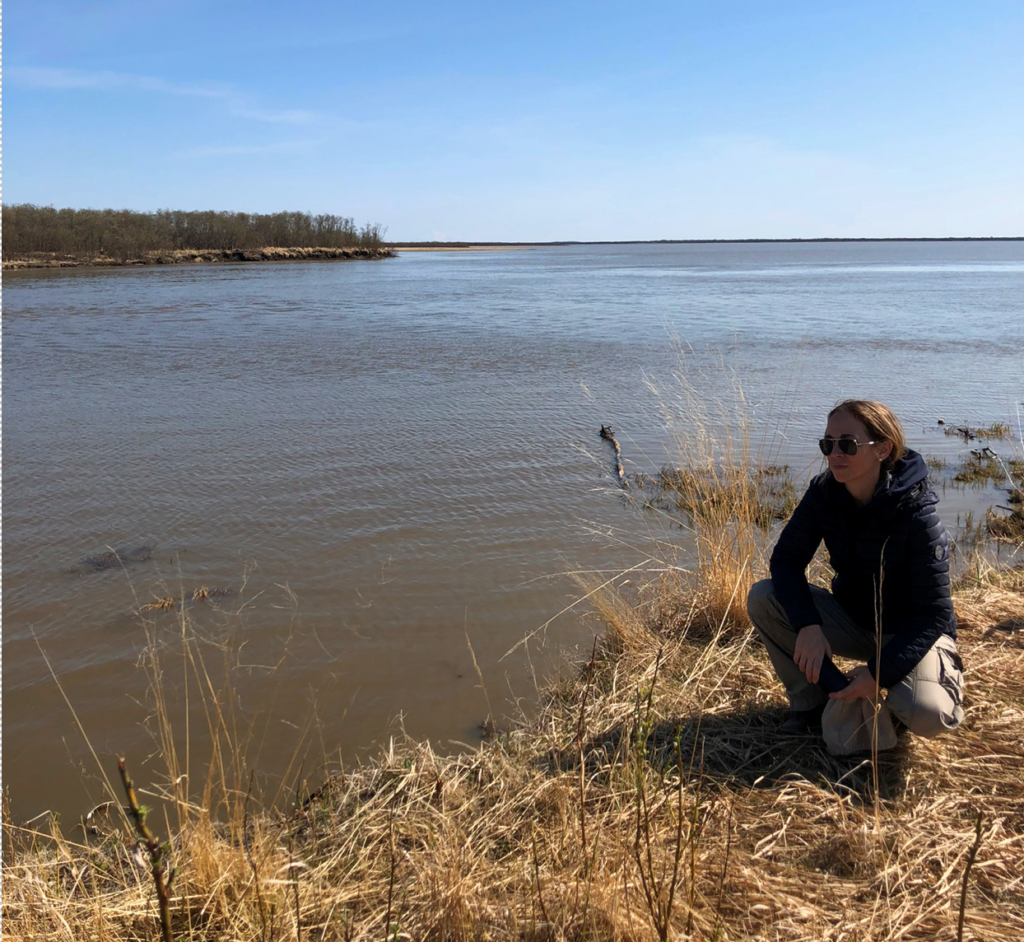
In May-June 2023, Environmental scientist and explorer Maria Tzortziou (Flag #37) traveled to Alaska’s west coast ‒ one of the most productive areas for Alaska fisheries and simultaneously a “ground zero” for climate change ‒ to study the profound impacts that rapidly changing land-water interactions are having on Arctic carbon cycles, ecology, economies and communities.
Arctic river deltas are among the most unique and fragile deltas on Earth and are changing rapidly as permafrost thaws, sea ice retreats, and hydrological cycles are changing. At the same time, Arctic River systems have historically provided not only the food security of Indigenous people, but also – especially for the “Salmon Peoples” of the Arctic – an important source of identity. Trends in Arctic River discharge, water quality, and chemistry are already providing strong insights into changes occurring over the Arctic landmass. What remains is a critical knowledge gap on how Arctic Rivers and their deltas act as sources, sinks, or transformers of carbon and nutrients, and how these rapidly changing biogeochemical fluxes affect coastal ecology, biodiversity, and local natural resources on which Arctic indigenous communities heavily rely.
As part of this expedition, Professor Tzortziou and her team traveled to the remote coast of western Alaska to conduct novel physical, optical, chemical, and biological measurements along the Yukon River terrestrial-aquatic landscape. A key objective of the expedition was to capture the impact of the spring freshet – one of the most extreme hydrological events and biogeophysical forcings in the Arctic – on the coastal ecosystem. The team integrated field measurements with laboratory experiments and remote-sensing observations from space. They also worked in close collaboration with local Alaskan communities, including the Alakanuk Tribal Council, the IGAP Environmental Department in Alakanuk, and students from the Lower Yukon School District, to integrate community-based monitoring in their field activities, and expand the spatial and temporal domain of their measurements..
Understanding climate change impacts on coastal Arctic systems more comprehensively – including impacts on food security and community infrastructure – and building innovative, sustainable solutions requires studying the interdependencies between the changing natural environment and the people at the forefront of climate resilience. As part of this expedition, and through interactions with local collaborators in Alaska, Tzortziou examined how coastal Arctic ecosystems have been changing and how Arctic native communities – on the frontline of climate crisis- have been experiencing and adapting their lives to climate change.
No results found.